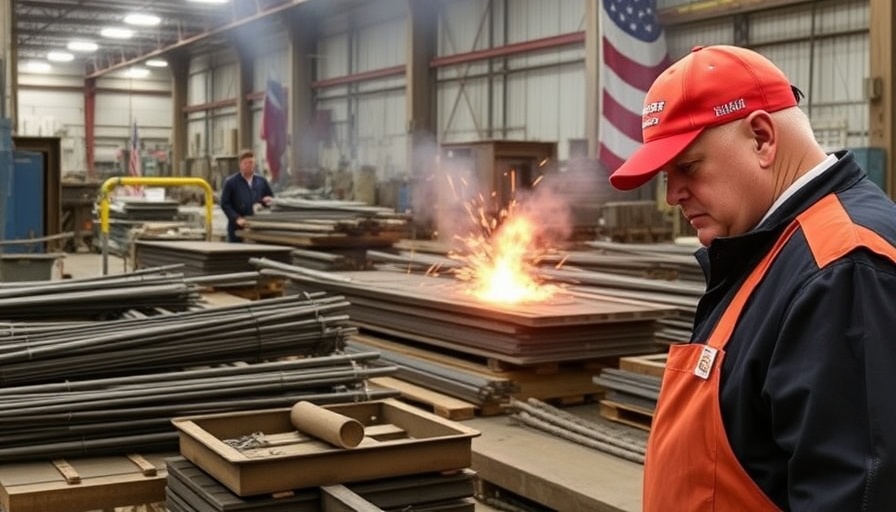
Understanding the Impact of Trump's 50% Steel and Aluminum Tariffs on Local Businesses
As President Trump’s 50% tariffs on steel and aluminum come into effect, local businesses across Dallas are bracing for the impending challenges that could arise from these significant price hikes. For many small businesses such as False Idol Brewing in North Richland Hills, this tariff means reevaluating their supply chains and pricing strategies. Co-founder Brandon Pitzer highlights the uncertainty that looms as they await increased costs from suppliers. “We will receive a 60-day notice about price changes,” Pitzer shares, showcasing the delicate balance small businesses must maintain between cost management and customer satisfaction.
The Small Business Struggle: Navigating Through Tariffs
The realities of tariff implementation extend beyond larger corporations to the small business sector where flexibility and quick decision-making are paramount. Pitzer articulates a common sentiment: "As a small producer, we're already paying higher costs than larger companies." The increased tariffs could force small businesses to absorb these expenses or pass them onto consumers, which could risk customer loyalty during tough economic times.
Legal Battles and Regulatory Uncertainty
The looming uncertainty is further complicated by potential legal challenges against the tariffs. Michelle Schulz, a legal expert in trade law, articulates that these disputes could eventually reach the Supreme Court, leading to a prolonged period of ambiguity for business owners. She emphasizes that being agile and having a proactive strategy is essential in this climate, where businesses must prepare for both outcomes — enduring higher costs or a potential rollback of the tariffs.
Broader Implications for the Dallas Economy
Considering the impact of these tariffs, the repercussions aren't confined just to businesses dealing directly with iron or aluminum products; the entire Dallas economy might feel the strain. Local supply chains, consumers, and even local government contracts could be affected if inflation surges as a result of these tariffs. Economic experts suggest that if small and medium-sized enterprises struggle to cope, this could lead to layoffs or reduced hiring, further impacting the local job market.
The Path Forward: Business Resilience and Community Support
Despite the challenges, there is a silver lining. The community's spirit in Dallas and the surrounding areas is proving resilient. Many businesses are not just waiting for the outcome of the tariffs but are actively seeking innovative solutions to minimize costs and maintain quality. Programs and initiatives from organizations such as the Dallas Chamber of Commerce are increasingly critical in providing support to small businesses as they navigate these challenging waters.
A Call for Consumer Awareness and Responsiveness
As businesses brace for changes, consumers are also called to be conscious of how their purchasing choices might affect local economies. Understanding the broader contexts behind price changes and supporting local businesses during tough transitions could create a more substantial community impact overall. Educated consumers can help ensure the survival of local shops and producers who are the backbone of the Dallas economy.
Conclusion: Staying Adaptable Amidst Economic Shifts
As the tariffs take effect, the focus shifts to adaptability and innovation within the local business landscape. The uncertainty that precedes these changes serves as a reminder not only for businesses but for consumers as well. Regular updates and active engagement with local businesses can create a more informed and resilient community, helping to mitigate the effects of tariffs and foster local economic growth.
 Add Element
Add Element  Add Row
Add Row 



Write A Comment